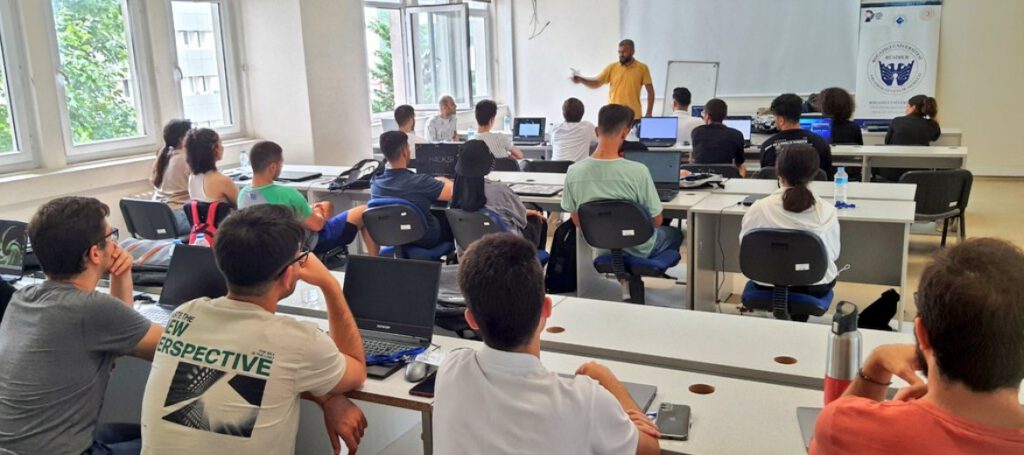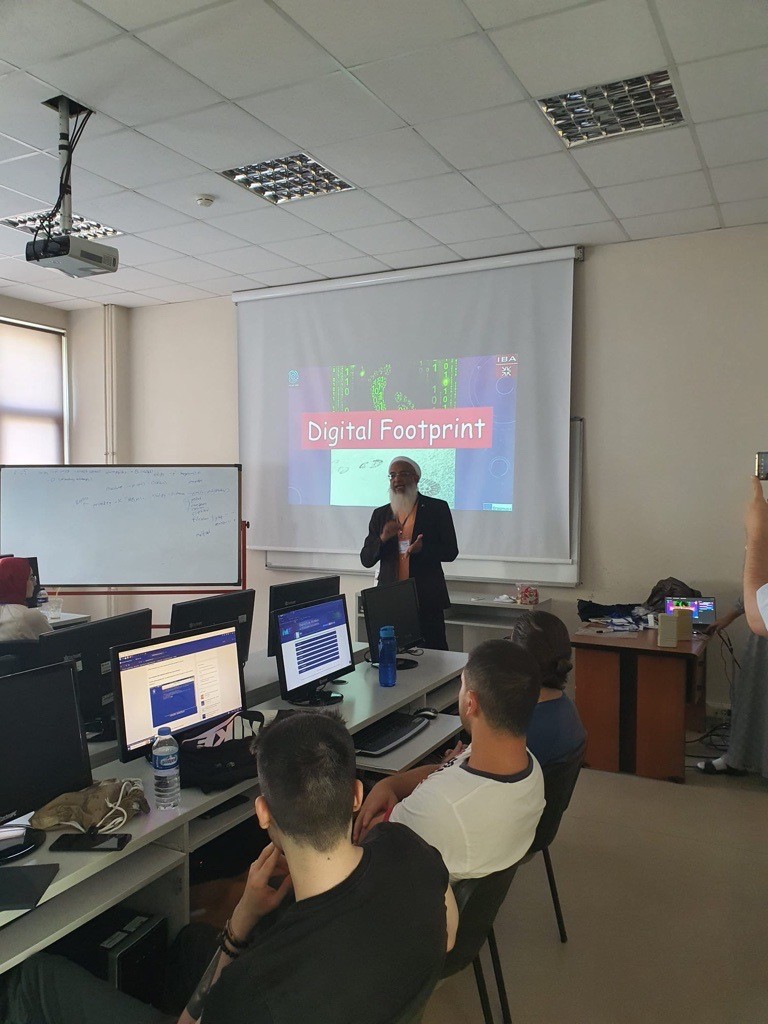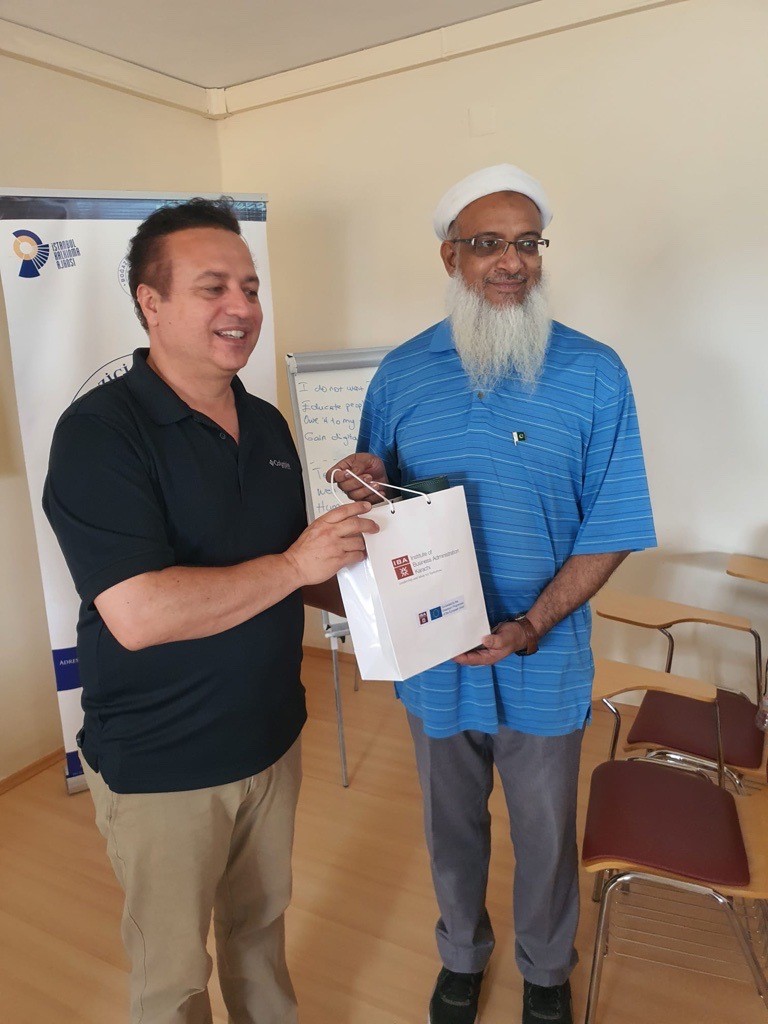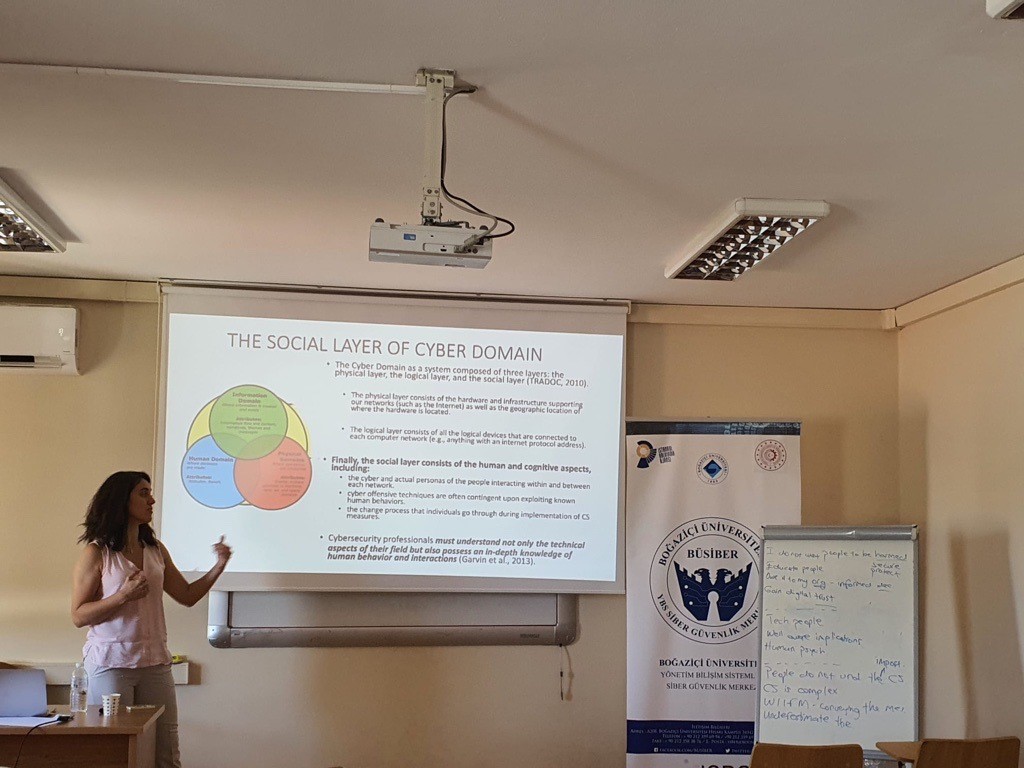As part of our ongoing ReCyP:HER project, representatives from our Pakistani partner universities —LUMS, NUST, Air University, and IBA—embarked on an enriching two-week job-shadowing program at Bogazici University (BU) lasting from 7th to 18th August 2023. This initiative aimed to enhance university-enterprise cooperation and empower participants with the skills necessary to organize impactful cybersecurity events.
A Comprehensive Agenda
The carefully crafted agenda for the visit included a blend of lectures, practical demonstrations, and collaborative discussions, all designed to foster a deeper understanding of cybersecurity concepts and their real-world applications. There were interactive sessions on topics like digital trust, AI, network security and current computer forensic technologies, which provided exposure to the latest advancements and trends in the cybersecurity landscape. The program provided opportunities for engagement with professionals from organizations like ISACA Istanbul Chapter, Diffoze, and Qualsys providing insights into the industry’s expectations, challenges, and best practices. Moreover, several discussions on human factors in cybersecurity that offered a holistic perspective, emphasizing the human element and broader security considerations. The overall program offered a comprehensive learning experience, industry exposure, networking, and cultural enrichment for the participting Universities. Furthermore, the participants also contributed in by giving tech talks at the CyberCamp and enhancing the students’ knowledge.
Week One Highlights
August 7 (Monday): The program kicked off with a warm welcome from BU faculty, Dr. Bilgin Metin and Dr. Nazim Taskin, who outlined the weekly structure. The day featured a session on “Digital Trust” by Gökhan Polat from ISACA İstanbul, followed by insights on technology adaptation from Dr. Duygu Salman. These sessions set a strong foundation for the week ahead.
August 8 (Tuesday): Participants delved into the latest in computer forensic technologies, including a live incident response demonstration by Şükrü Durmaz of Diffoze. This hands-on experience proved invaluable, providing insights into the practical challenges and techniques in incident response.
August 9 (Wednesday): The focus shifted to third-party information security with Ayşın Gök from Securityscorecard. The day also included discussions on project management and system analysis, encouraging participants to think critically about the organizational aspects of cybersecurity.
Exploring Advanced Topics
August 10 (Thursday): This day was dedicated to cutting-edge topics such as artificial intelligence in cybersecurity, led by Dr. Aysun Bozanta Hakyemez. Discussions around machine learning and secure software development further illustrated the complexities and innovations within the field.
August 11 (Friday): Zeynep Uludag discussed the human factors in cybersecurity, highlighting the importance of understanding user behavior in security measures. This was followed by a session on deceptive cyber defense solutions, emphasizing the need for strategic thinking in cybersecurity practices.
Weekend Reflection and Networking
The weekend was dedicated to social activities, allowing participants to unwind and reflect on their learnings while exploring the vibrant culture of Istanbul. This balance of work and leisure fostered connections among participants and BU faculty, paving the way for future collaborations.
Week Two: Hands-On Cyber Camp
The second week focused on the CyberCamp, hosted by BUSIBER at BU’s North Campus. Running from August 15 to 18, this immersive program included multiple sessions each day, focusing on teaching participating students practical skills in cybersecurity. Participants engaged in collaborative projects, applying their newfound knowledge in real-world scenarios. The hands-on approach of the CyberCamp allowed them to experiment with various cybersecurity tools and techniques, solidifying their understanding of the topics covered. The representatives of our partner universities took part in the camp as part of their job shadowing but didn’t miss the chance to contribute in by giving tech talks and enhancing the students’ knowledge.
Conclusion
The RECYPHER job-shadowing program at Bogazici University was a remarkable opportunity for participants to gain insights into effective cybersecurity education and practices. By collaborating with experienced faculty and industry experts, the representatives from Pakistan’s universities enhanced their skills and expanded their professional networks.
As the cybersecurity landscape continued to evolve, initiatives like these proved crucial in fostering collaboration between academia and industry. The knowledge gained from this experience undoubtedly empowered participants to organize impactful cybersecurity events back home, ultimately contributing to a safer digital environment for all.
With strengthened ties and shared knowledge, the ReCyP:HER project made significant strides in promoting cybersecurity awareness and resilience across institutions.



